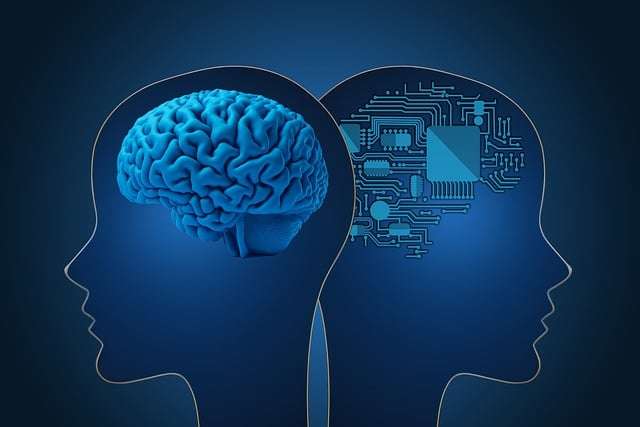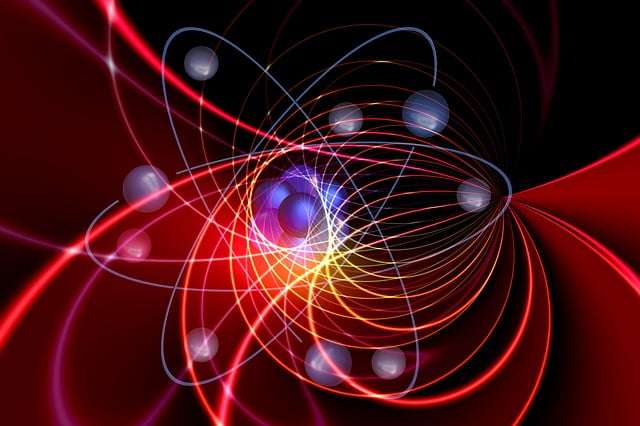Unraveling the Quantum Enigma

Quantum Information Science (QIS) represents a cutting-edge exploration into the intricacies of quantum mechanics. It delves into manipulating and utilizing quantum phenomena to revolutionize how we process and transmit information. At its core, QIS holds the promise of transformative breakthroughs, from quantum computers to secure communication networks, offering unprecedented insights and technological advancements.
Harnessing the Power of Quantum Computing

Quantum computers, powered by principles like superposition and entanglement, herald a new era in computational capability. These machines, utilizing quantum bits or qubits, can tackle complex problems exponentially faster than classical computers. From accelerating drug discovery to optimizing financial strategies, quantum computing has the potential to reshape entire industries and propel scientific discovery forward.
Pioneering Quantum Communication

Quantum communication, grounded in the principles of entanglement and superposition, offers an unbreakable shield of security. Through quantum encryption methods, communication channels are fortified against eavesdropping attempts, ensuring unparalleled data protection. As the need for robust cybersecurity measures grows, the development of quantum communication technologies becomes increasingly vital for safeguarding sensitive information in an interconnected world.
Exploring Quantum Sensing and Precision

Quantum Information Science extends its reach into the realm of sensing and metrology, revolutionizing measurement techniques with unprecedented precision. Quantum sensors, leveraging properties like superposition and coherence, enable meticulous measurements of magnetic fields, gravitational waves, and more. These advancements have far-reaching implications, spanning from enhancing medical diagnostics to unraveling the mysteries of the universe’s fundamental principles.
Quantum Cryptography: Fortifying Data Security
Quantum cryptography goes beyond traditional encryption methods by leveraging the principles of quantum mechanics to secure communication channels. Quantum key distribution (QKD) protocols enable the exchange of cryptographic keys with absolute security, as any attempt to intercept or measure the quantum states would disrupt the communication, alerting both parties to the breach. As cyber threats evolve, quantum cryptography offers a robust defense against hacking and data breaches, ensuring the integrity and confidentiality of sensitive information in digital communications.
Quantum Machine Learning: Enhancing Artificial Intelligence
The marriage of quantum computing and machine learning holds promise for revolutionizing artificial intelligence (AI) applications. Quantum machine learning algorithms, designed to run on quantum computers, offer exponential speedups for complex optimization tasks, pattern recognition, and data analysis. These advancements have the potential to accelerate AI-driven solutions in various domains, from healthcare and finance to autonomous vehicles and robotics, unlocking new capabilities and insights that were previously out of reach for classical computing.
Quantum Internet: Connecting the Quantum World
The concept of a quantum internet aims to create a global network of interconnected quantum computers and communication nodes, enabling secure quantum communication and distributed quantum computing. Quantum repeaters, quantum routers, and quantum memories are key components of the quantum internet infrastructure, facilitating the transmission and processing of quantum information over long distances. As efforts to build a quantum internet progress, researchers envision a future where quantum technologies enable ultra-fast, ultra-secure communication and computation on a global scale, ushering in a new era of connectivity and collaboration.
Quantum Metrology: Redefining Measurement Standards
Quantum metrology leverages quantum properties such as entanglement and superposition to achieve unprecedented levels of precision in measurement standards. Quantum clocks, based on atomic or optical systems, surpass the accuracy of traditional atomic clocks, enabling precise timekeeping for applications ranging from GPS navigation to fundamental physics research. Similarly, quantum magnetometers and gravimeters offer unparalleled sensitivity for mapping magnetic fields and detecting gravitational anomalies, opening new avenues for scientific exploration and technological innovation.
Quantum Materials: Unveiling Novel Properties
Quantum materials are a class of materials that exhibit exotic quantum phenomena, such as superconductivity, topological order, and quantum spin liquids. These materials hold promise for a wide range of applications, including quantum computing, energy storage, and next-generation electronics. By studying and manipulating quantum materials at the nanoscale, researchers can unlock their unique properties and harness them for transformative technologies with implications for both fundamental science and practical applications.
Quantum Biology: Probing Life’s Quantum Secrets
Quantum biology explores the role of quantum phenomena in biological systems, from photosynthesis and enzyme reactions to sensory perception and consciousness. Quantum effects such as coherence and entanglement may play a fundamental role in processes such as energy transfer, molecular recognition, and genetic regulation. By uncovering the quantum principles at work in living organisms, researchers aim to deepen our understanding of life itself and inspire new approaches to healthcare, biotechnology, and ecological conservation.
Quantum Ethics: Navigating Ethical Challenges
As quantum technologies advance, it is essential to address the ethical implications and societal impacts of their deployment. Ethical considerations in quantum research encompass issues such as data privacy, algorithmic bias, and the potential for misuse or unintended consequences. Responsible innovation frameworks, ethical guidelines, and public engagement efforts are essential for ensuring that quantum technologies are developed and deployed in a manner that prioritizes safety, equity, and human well-being. By proactively addressing ethical challenges, we can maximize the benefits of quantum technologies while mitigating potential risks and promoting ethical decision-making in research and industry.
Quantum Computing Hardware: Overcoming Technical Challenges
While the potential of quantum computing is vast, there are significant technical challenges to overcome in developing reliable and scalable quantum hardware. Issues such as qubit coherence time, error rates, and qubit connectivity pose formidable obstacles to building practical quantum computers. Researchers are exploring various approaches, including superconducting qubits, trapped ions, and topological qubits, to address these challenges and achieve fault-tolerant quantum computation. Breakthroughs in quantum hardware design and fabrication hold the key to realizing the full potential of quantum computing for solving real-world problems and driving scientific innovation.
Quantum Algorithm Design: Unlocking Computational Power
Designing efficient and scalable quantum algorithms is essential for harnessing the computational power of quantum computers. Quantum algorithms must exploit the unique properties of qubits, such as superposition and entanglement, to outperform classical algorithms for specific tasks. Research in quantum algorithm design spans optimization problems, cryptography, simulation of quantum systems, and machine learning. By developing novel quantum algorithms and optimizing existing ones, researchers aim to unlock the full computational potential of quantum computers and enable breakthroughs in areas such as drug discovery, materials science, and cryptography.
Quantum Error Correction: Ensuring Reliability and Stability
Quantum error correction is critical for mitigating the effects of noise and errors in quantum computing systems, which arise from interactions with the environment and imperfections in hardware components. Quantum error correction codes encode quantum information redundantly, allowing errors to be detected and corrected without compromising the integrity of quantum computations. Developing robust and efficient error correction schemes is essential for achieving fault-tolerant quantum computation and realizing the promise of scalable quantum computing platforms. Advances in quantum error correction algorithms and techniques are essential for overcoming the challenges posed by noise and errors in quantum hardware and enabling reliable and stable quantum computation.
Quantum Simulation: Modeling Complex Systems
Quantum simulation involves using quantum computers to simulate the behavior of complex quantum systems that are difficult to study using classical computational methods. Quantum simulators can mimic the behavior of molecules, materials, and physical systems with unprecedented accuracy and efficiency, offering insights into quantum phenomena that are inaccessible to classical computers. Applications of quantum simulation include drug discovery, materials design, and fundamental physics research. By harnessing the power of quantum simulation, researchers can accelerate scientific discovery and innovation in diverse fields and pave the way for transformative advances in technology and science.
Quantum Networking: Building Quantum-Enabled Infrastructure
Quantum networking aims to establish communication networks that leverage quantum properties such as entanglement and superposition to enable secure and efficient transmission of quantum information. Quantum repeaters, quantum memories, and quantum routers are key components of quantum networks, enabling long-distance quantum communication and distributed quantum computing. Building quantum-enabled infrastructure requires overcoming technical challenges such as decoherence, loss, and noise, as well as developing robust protocols for quantum communication and information processing. Quantum networking has the potential to revolutionize communication and computation by enabling ultra-secure and high-speed quantum communication networks, facilitating global collaboration and innovation in the quantum era.






